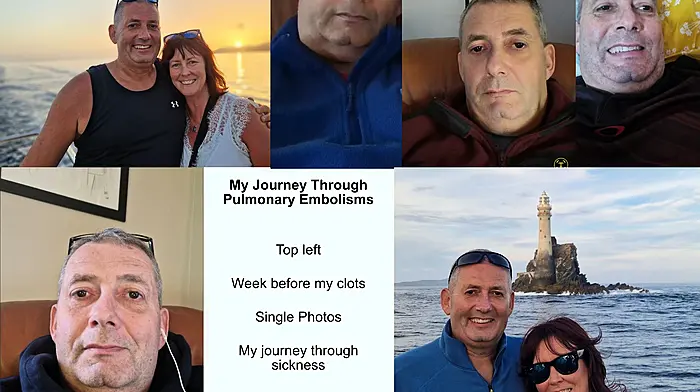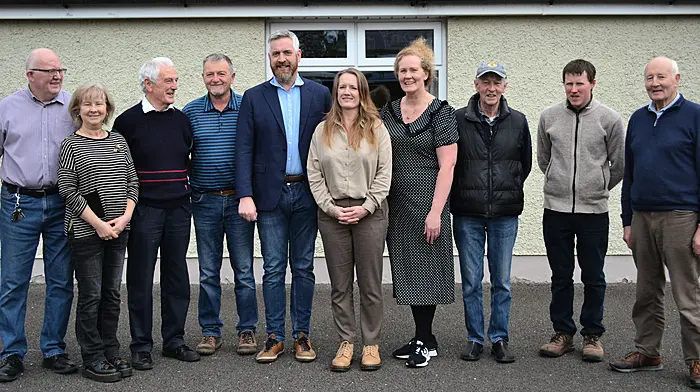EDITOR – Global warming was front page news 30 years ago, so why has it taken our leaders this long to address these problems?
Since the Paris agreement in 2015, we have seen rising emissions, and rising temperatures, as well as rising fossil fuel production – and it’s the vulnerable who suffer the most.
Countries in the global south contribute relatively little to climate change in terms of carbon emissions, but yet they are among the hardest hit partly because they rely heavily on rain-fed farming.
Rising temperatures and sea levels – as well as rainfall anomalies – have heightened the frequency and intensity of natural disasters, so why should these vulnerable communities have to suffer the most from the mistakes of the western world?
From working in Kenya since 2002, I have seen first hand the result of climate change with the women and girls I work with within Brighter Communities Worldwide, from having to walk even longer distances to access water and collect firewood on a daily basis, as well as working extended hours in fields to ensure food security, due to reduced crop yields.
This is having a major impact on their livelihoods and education, and so they continue to face a disproportionate impact from the climate crisis.
We welcome the news of Ireland’s additional aid funding of €2.1m to help address the impact of climate change in developing states. But there is no compensation for victims of climate disasters and more needs to be done, now.
Maria Kidney,
Co-founder,
Brighter Communities Worldwide,
Cork.
Cop26 has failed the poorest nations
EDITOR – Concern Worldwide was at Cop26 in Glasgow to highlight the impact that climate change is already having on the lives of the poorest.
However, it appears the leaders of wealthy countries had failed the most vulnerable.
As usual, national economic growth has been prioritised by political leaders over sustainable economies and livelihoods. The existential threat to the planet and the immediate threat to the lives and livelihoods of the world’s most vulnerable people have not been given the urgency they demand.
The $100bn a year promised by high income countries in 2009 to help people in poorer countries adapt to the ever increasing droughts, floods and extreme weather events that come with climate change has never been delivered, and now it’s been further pushed down the line to 2023. People in these countries are being forgotten, they don’t have the luxury of delaying how they feed themselves, keep shelter over their heads, keep their families safe.
The countries least responsible for climate change are being driven into debt trying to deal with the impacts of climate change and related crises. The commitment to climate finance, to help people adapt to their changing environments, needs to be in addition to overseas development budgets, which are already overstretched. What failed to be addressed at Cop26 was finance for the losses and damages already caused by climate impacts in developing countries. The outcome committed to more dialogue, rather than action on this issue of critical importance for the most vulnerable countries.
While some progress was made, it is worlds away from what is needed. There is always a lag time between commitments and their implementation in terms of actions, so the lack of urgency and ambitious targets is extremely worrying. But we will continue to push world leaders for immediate action and will work with the most vulnerable to make sure that their voices are heard louder than ever.
Connell Foley,
Director of Advocacy,
Concern Worldwide,
Lower Camden Street,
Dublin 2.
Connolly wouldn’t be one bit impressed
EDITOR – I read an article recently where the author asked ‘if James Connolly survived 1916 what would have been his influence and what kind of Ireland would he have helped to shape?’
James Connolly was a ‘socialist’ and spent his life attempting to improve conditions for the ‘working class’.
I believe James Connolly would be shocked at the ‘exploitation’ of the working class, by the ‘wealthy, the privileged and vested interests’ – resulting in the rich becoming richer, the poor becoming poorer and the so-called middle class now slipping into the definition of ‘poor’.
Not so long ago people working weekends (Saturday/Sunday) would be paid extra – now substantial numbers are paid a flat rate – regardless of days or hours worked.
In general, I believe the working conditions have deteriorated so the profits of multinational companies can increase.
In addition, the arrival of so-called vulture funds deprives many working class of the ability to purchase their own home.
I suggest James Connolly would be a very sad man in the Ireland of today.
Michael A Moriarty,
Rochestown,
Cork.










